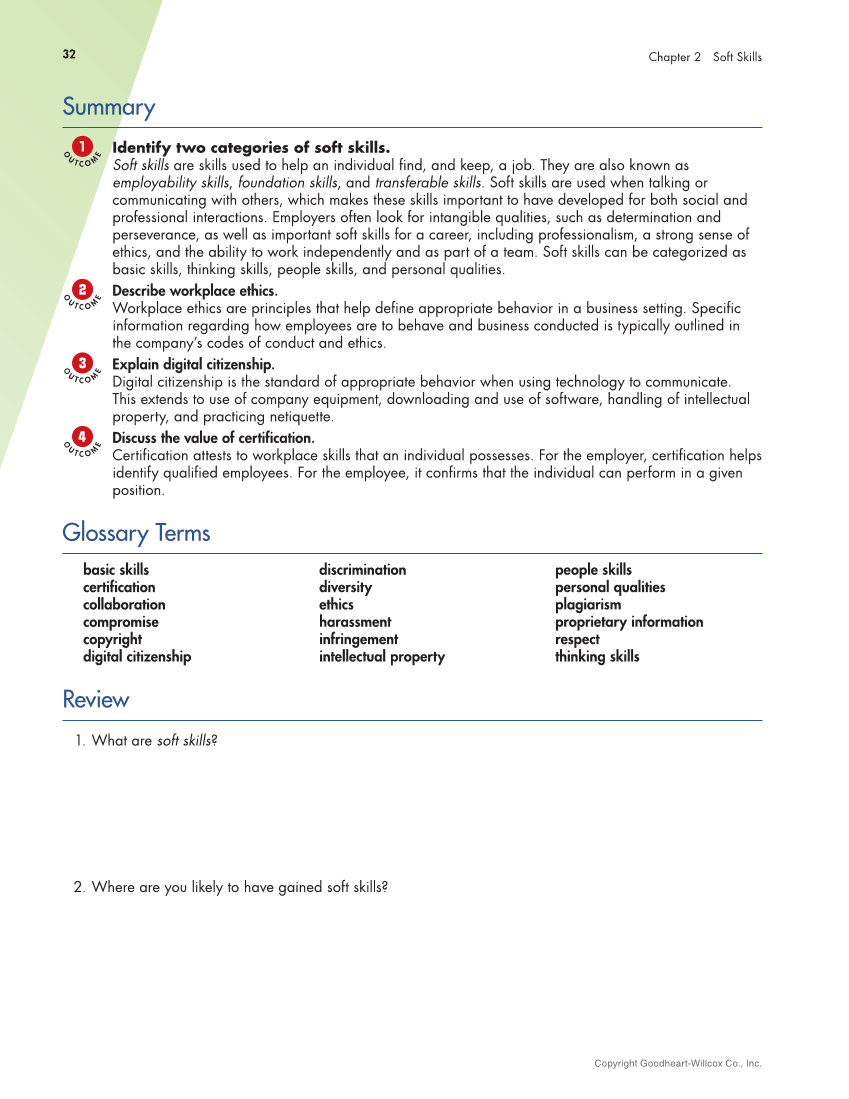Summary O U T CO M E 1 Identify two categories of soft skills. Soft skills are skills used to help an individual find, and keep, a job. They are also known as employability skills, foundation skills, and transferable skills. Soft skills are used when talking or communicating with others, which makes these skills important to have developed for both social and professional interactions. Employers often look for intangible qualities, such as determination and perseverance, as well as important soft skills for a career, including professionalism, a strong sense of ethics, and the ability to work independently and as part of a team. Soft skills can be categorized as basic skills, thinking skills, people skills, and personal qualities. O U T CO M E 2 Describe workplace ethics. Workplace ethics are principles that help define appropriate behavior in a business setting. Specific information regarding how employees are to behave and business conducted is typically outlined in the company’s codes of conduct and ethics. O U T CO M E 3 Explain digital citizenship. Digital citizenship is the standard of appropriate behavior when using technology to communicate. This extends to use of company equipment, downloading and use of software, handling of intellectual property, and practicing netiquette. O U T CO M E 4 Discuss the value of certification. Certification attests to workplace skills that an individual possesses. For the employer, certification helps identify qualified employees. For the employee, it confirms that the individual can perform in a given position. Glossary Terms basic skills certification collaboration compromise copyright digital citizenship discrimination diversity ethics harassment infringement intellectual property people skills personal qualities plagiarism proprietary information respect thinking skills Review 1. What are soft skills? 2. Where are you likely to have gained soft skills? Copyright Goodheart-Willcox Co., Inc. 32 Chapter 2 Soft Skills
